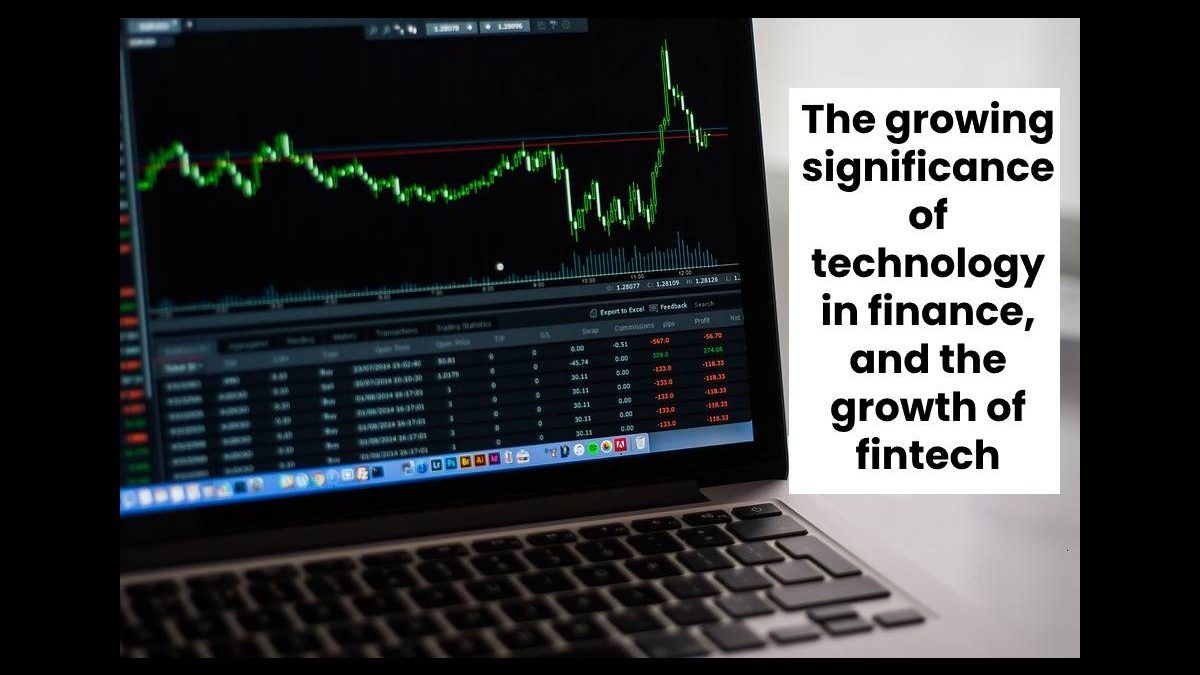The growing significance of technology in finance, and the growth of fintech
As technology advances and new applications emerge throughout all industries, it is obvious that the computer revolution has become increasingly essential and powerful in all kinds of industries. The realm of finance is however one sector where technology is assisting in its advancement. Several technical sectors have sprung up during the last several decades, helping to enhance the practices of people in their respective fields.
The wider populace utilizes services such as online and mobile payments, contactless payments, eWallets, and a few even dabble in cryptocurrencies on a basic level, but technologies are driving finance much farther behind the scenes.
Fintech today refers to any technology breakthrough in the financial industry, with the emergence of cryptocurrencies being the most visible and debated in recent years.
Organizations and experts in finance, just like all the other sectors, should continue to adapt their techniques and procedures in order to provide the best quality service to consumers. This used to entail raising prices or increasing client service, but it now heavily relies on upgrading one’s technical service for customers in order to improve the simplicity, efficiency, and dependability of the service or increasing in-house technologies to create employee speed up and be more dependable.
Fintech is improving almost all financial services
One of the primary ways that fintech is assisting in the evolution of the financial industry is by enhancing services that were previously regarded as inadequate.
One of the most notable uses of fintech is the employment of various sorts of robots to enhance the previously unimpressive high-frequency trading sector. The industry has considerably improved on its previous offers because of the introduction of smart fintech, which allows news-based pricing and text-reading engines.
While elevated trading has always relied on tech but it has recently achieved success with sophisticated fintech, the accounting industry might soon see an infusion of fintech to enhance service too.
On top of that, it should be highlighted that the trading platforms have been used very actively in recent years. This is especially true since a lot of broker companies offer their clients different types of trading platforms in order to make the customer experience more efficient and productive. The greatest example of this type of situation is this XM broker review where you can see that the brokerage firm gives the traders an opportunity to choose between different types of trading platforms according to their skills and experience in the industry.
The finTech industry is transforming and diversifying
After the Global Financial Crisis in 2008, the FinTech industry began to grow fast. This was owing to the fact that financial firms were unable to respond swiftly to customer requirements as a result of a variety of legal and regulatory constraints imposed to mitigate the effects of the crisis. At the very same time, the major drivers of FinTech development were technical progress, growing client demands, finance, and availability of capital, as well as institutions and regulatory backing.
FinTech makes standard finance services more inexpensive, adaptable, and safe, and as a result, FinTech is among the driving factors of the digitalization of the whole financial industry and the global expansion of financial accessibility. The growth of the FinTech business has a major effect on the financial system. FinTech aims to increase the accessibility of financial products for both individuals and companies.
FinTech firms are rapidly expanding and get significant investment in their growth every year. On top of that, conventional financial firms are feeling threatened since, as the number of FinTech businesses grows, so does competition in the financial services industry. Traditional banks are being pushed to adapt to new realities and form partnerships with FinTech businesses in order to remain competitive. FinTech firms may assist banks in providing better financial services while also strengthening their comparative edge. They may, for example, boost financial inclusion, improve user experience, raise transparency, strengthen security, as well as give assistance and guidance.
The Bottom Line
Overall, it can be said that Today, the Fintech business is one of the fastest expanding. This is hardly unexpected given that, in today’s fast-paced world, financial transactions cannot take long. For both purchases for products and foreign transfers, fast transactions have become the standard. Aside from that, businesses are beginning to develop new services or automation within the firm.
There are various reasons why fintech companies tend to increase so fast. FinTech makes traditional banking services more affordable, flexible, and secure; as a consequence, FinTech is one of the driving forces behind the digitization of the whole financial sector and international financial accessibility. FinTech strives to make financial products more accessible to both people as well as businesses. Therefore, the success of this field is no longer a surprise.

